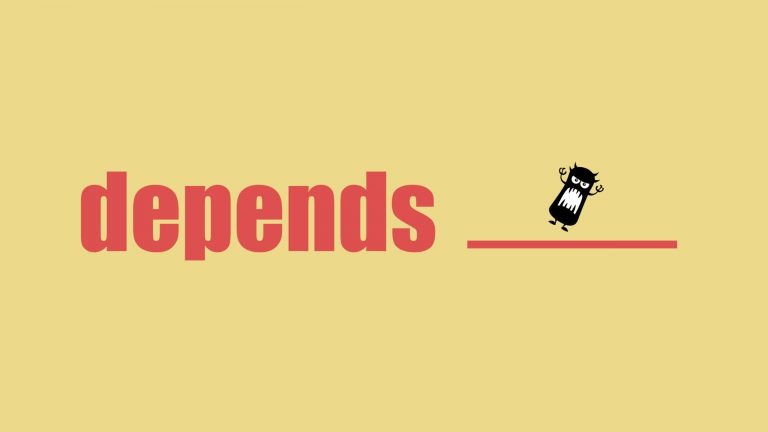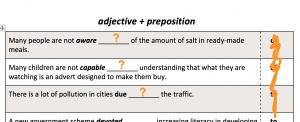
IELTS Grammar: Dependent Prepositions
Learning to use prepositions correctly is one of the most difficult tasks facing English language learners. In fact, along with articles it is usually the final thing that a student masters before becoming 100% proficient. The problem is that we use prepositions in so many different ways. We use them to show place (The cat is under the table), time (I will meet you on Sunday), and to help create phrasal verbs (I ran out of time in the exam). In fact, there are so many different preposition rules that it would be impossible for me to teach them all in one blog post. So, today, I want to focus on just one type: dependent prepositions.
We’ll start with a short explanation of what they are, and then you can download a FREE My IELTS Classroom printable handout to practice!
CLICK HERE TO DOWNLOAD YOUR FREE MY IELTS CLASSROOM DEPENDENT PREPOSITION WORKSHEET
What are dependent prepositions?
Well, let’s think about it – what does the word “dependent” mean?
dependent
adjective
UK /dɪˈpen.dənt/ US /dɪˈpen.dənt/
- needing the support of something or someone to continue existing
Essentially, dependent prepositions exist because they are attached to the word that comes before them. Or, very simply, when you use certain words in English, you HAVE TO follow them with a specific preposition. Why? I have no idea! There is no logic to this! You just have to learn that some English words are always followed by a particular preposition and without them, the sentence is not complete.
What types of words do dependent prepositions follow?
Good question! Dependent prepositions can come after three types of words: adjectives, verbs and nouns. Let me give you an example of each (and check if you knew which preposition should follow each):
- after an adjective (I’m interested in photography)
- after a verb (Many young adults still depend on their parents)
- after a noun (There is no solution to the problem)
The problem is that we don’t always use the same preposition after each type of word – you can be interested in, but keen on, or aware of! All three of these words are adjectives, but each is followed by a different preposition! This is the problem! While these words join naturally in my native-speaker brain, it can be hard for learners to remember which prepositions follow which words.
In fact, amongst the My IELTS Classroom students, I have noticed over the last year that even my very high-level learners (people scoring 7.5+ in the writing exam), still make basic errors with dependent prepositions.
How can I learn dependent prepositions?
So, this leads to the question, how can I learn which preposition goes with which word? Well, do you remember learning irregular verbs when you were an elementary student …..
see / saw / seen
teach / taught / taught
put / put / put
Dependent prepositions are pretty much the same – you simply have to roll up your sleeves and memorise them. Obviously, this is not an easy task, which is why they cause so much trouble for students. But, fear not, I have put together a worksheet to help you! Yes! I was tired of correcting the same mistakes again and again in my student’s essays, so I have made a handout that contains the most common word dependent prepositions combinations for IELTS test-takers. Yes, I went through over 500 essays to find the mistakes that kept repeating again and again, and put them all in one place:
CLICK HERE TO DOWNLOAD YOUR FREE MY IELTS CLASSROOM DEPENDENT PREPOSITION WORKSHEET
All you need to do is print the handout, and fold it so that you can’t see the answers. Then, look at the sentences and try to guess which preposition should go in each space. Remember, you need to look at the word before the space, as this is what dictates what the preposition will be.

If you get the answer correct, you can write the preposition in the space. If you don’t, put the worksheet away and try again the next day. If you do this every day for a week, you will soon be able to remember all the dependent prepositions (there are 40+), and this could make a dramatic difference to your lexical resource / grammatical range and accuracy score on exam day!
